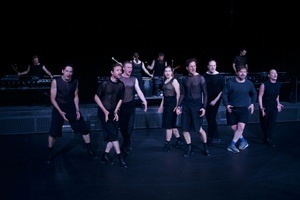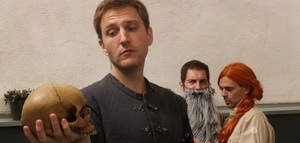In the organizer's words:
Composer Erich Wolfgang Korngold. Libretto by Paul Schott freely adapted from Georges Rodenbach's novel "Bruges-la-Morte".
The boundary between dream and reality becomes increasingly blurred when Paul, grieving for his deceased wife Marie, meets the dancer Marietta. Due to her outward resemblance to Marie, Marietta becomes a projection screen for Paul's erotic desires, whose grief takes on cult-like traits: The deceased's carefully preserved lock of hair is kept like a relic. After a nerve-wracking "vision" with a cathartic effect, Paul is finally grounded in reality. He can leave the city of Bruges as the place for his death cult. The original title of the work, "Triumph of Life", is indicative of the protagonist's personal development.
A few weeks before the immensely successful premiere of Die tote Stadt, none other than Giacomo Puccini described the then 23-year-old Erich Wolfgang Korngold as "the strongest hope of new German music". Arias such as "Glück, das mir verblieb" and "Mein Sehnen, mein Wähnen" are part of the concert repertoire of numerous opera singers due to their melodic urgency and radiate far beyond the fame of Die tote Stadt
Price information:
Prices vary depending on the seat category.













